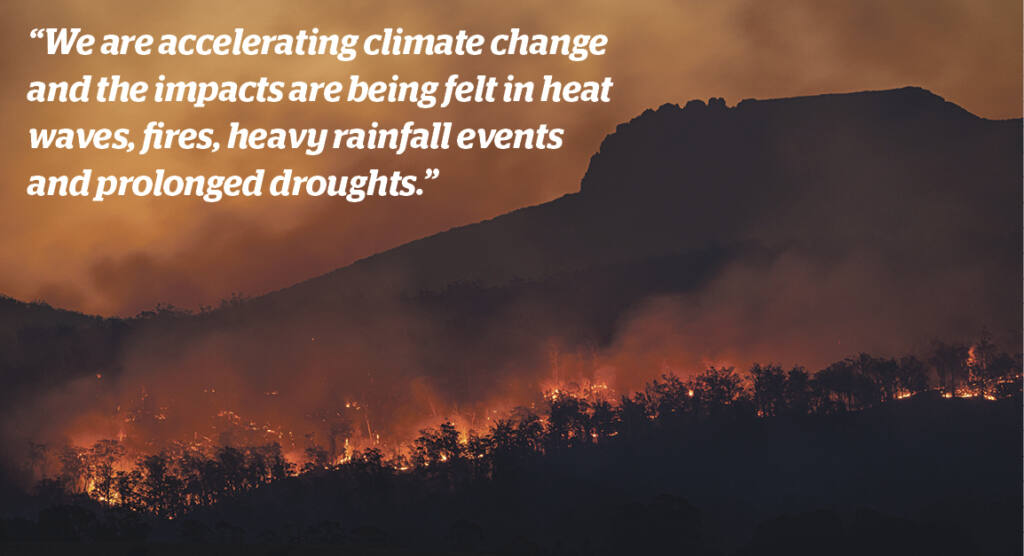NauMai September 2021
Peter Healy sm

The UN Intergovernmental Panel on climate change has released its latest report. This Sixth Assessment Report is a weighty document at nearly 4000 pages and the science is described as robust. It has been tagged ‘code red’ because human activity is changing our climate in unprecedented ways. A key word for the whole report, according to Will Steffen an Australian climate systems scientist, is ‘urgency’. We have this current decade to act and to do so decisively. To shift all human activity and the global economy to a low-carbon footing is the task before us. There can be no new coal, gas or oil developments and existing fossil fuel extraction has to be phased out. A key date is 2030, for at least a 50 per cent reduction in emissions.
As far as I know, this is the first time an IPCC report has had front page headlines here in Aotearoa New Zealand. Usually, such reports are relegated to a modest headline on the world news page. Given the narrow pathway to avoiding climate catastrophe it is right that this report is headline news, front and centre for all to see.
The main findings of the report are that the scale and pace of change to our climate system has no precedent. Human activity is changing the climate system in the form of ice-sheet melt, ocean acidification, shifts in rainfall zones and rising sea levels. We are accelerating climate change and the impacts are being felt in heat waves, fires, heavy rainfall events and prolonged droughts. Many of these impacts are worsening due to ‘baked in’ effects. Natural systems have not been able to cope with the rate of change we have inflicted on them and contain an ongoing momentum. Catastrophic events will increase for at least the next two decades, even as we make significant changes now.
One of the lead authors of this report, Joelle Gergis, says ‘it dawned on her during its assembly, that this is the scientific community’s last chance to make a difference’. Pope Francis knows this too, he is reported to be attending the UN Glasgow Conference of Parties (COP26) climate summit in October this year. He will address the gathering and later meet with Scottish bishops.
We have a tough few decades ahead of us due to past inaction. Our negligence means strong action is needed immediately. Global emissions did fall by approximately six per cent in 2020, largely as a result of actions taken during the Covid-19 pandemic. As the World Wildlife Fund, and other environmental groups say, we have to make this crisis an opportunity to keep emissions on a downward trajectory. We have to direct all funding into actions and infrastructure that secures planetary and human well-being in readiness for the next shock and our on-going resilience.
This IPCC Report is sobering and serious. It is a final challenge to all life on earth and to all religious institutions. We do have time to make the changes being asked of us. We can take fresh encouragement at initiatives underway at different levels of church life and the newly named ‘Laudato si’ Movement. This movement has goals and action plans that will guide and encourage us towards a vision of ecological conversion for all 1.3 billion Catholics in the world.
Manaakitia a Papatūānuku tō tātou kāinga/Care for Earth our common home.
Peter Healy sm, Whānau Maria Ōtaki